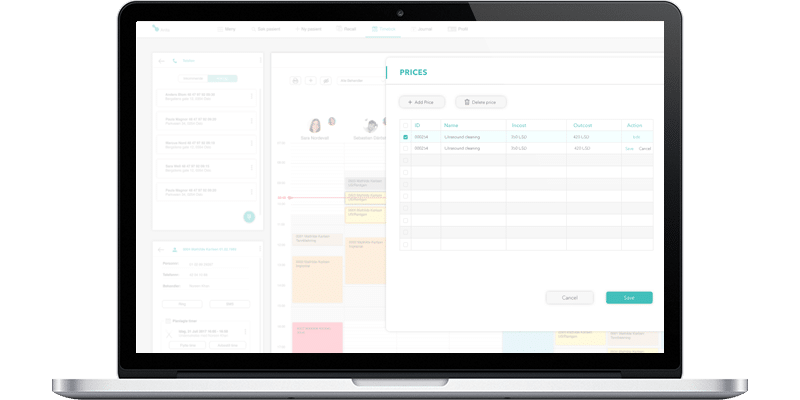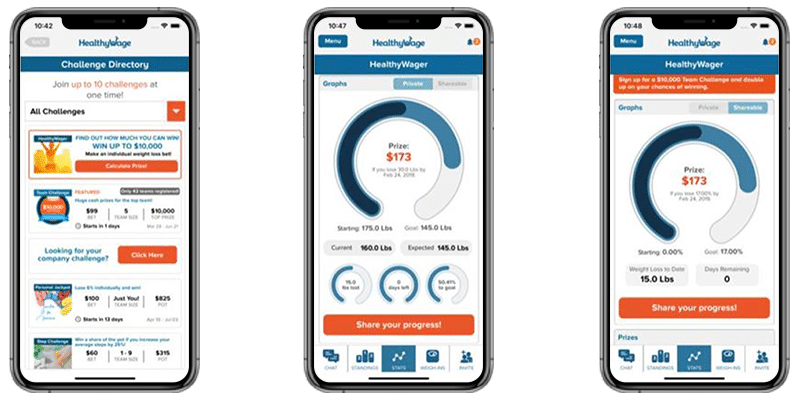People who address healthcare facilities entrust a slew of personal and sensitive information to these organizations. The Health Insurance Portability and Accountability Act (HIPAA) guarantees the protection of such data, so medical institutions and insurance companies are under obligation to comply with it. Special government agencies hold regular HIPAA compliance audits to ensure adherence to security standards.
You can guarantee the successful passing of the audit by conducting a comprehensive internal pre-audit, which can be performed only by qualified specialists in this domain. DICEUS, with its broad expertise in healthcare software development, can help you audit HIPAA compliance to pinpoint problem areas and identify improvement opportunities.
About DICEUS
HIPAA compliance risk assessment
Procedures aimed at risk assessment are the core of HIPAA audit protocol. Their mission is to discover vulnerabilities in handling health data and gauge potential risks their leakage may pose. When properly conducted, risk assessment as a part of the HIPAA compliance program can help healthcare agencies avoid the following incidents.
- Data breaches. They may happen because of flaws in an organization’s digital infrastructure, which should be exposed via risk assessment efforts.
- Hamstrung productivity. Each time the company’s IT environment is brought to a standstill due to a security breach, its productivity plummets.
- Regulatory punishments. If you fail to keep patient data intact, authorities in the field will impose heavy fines or other penalties on you for not obeying the requirements.
- Customer drain. When people become aware that your cybersecurity policy is inadequate, they will flee you in droves and spend their money to enrich your competitors.
- Reputational damage. Losing the trust of customers entails severe reputational damage that may result not only in shrinking clientele but also in legal suits filed against you.
Crucial elements of HIPAA audit
To forestall all these unpleasant developments, your risk assessment roadmap within the framework of HIPAA security audit should focus on such crucial elements.
- Weak passwords. Reliance on them opens not the backdoor but the grand entrance for hackers who have a knack for cracking them.
- Unpatched systems. If your infrastructure’s protective mechanisms are outdated, you are in for trouble at any time.
- Subpar user access control. Unrestricted access to data handling operations by negligent, incompetent, or just unauthorized employees turns them into apparent threat actors.
- Insufficiently protected networks. The vulnerability of Wi-Fi networks is caused by weak or absent encryption they rely on.
- Unsafe data manipulation. Substandard data encryption during transmission or storage is a surefire recipe for its future compromising.
Need consulting on HIPAA compliance?
Book a free consultation with our experts.
Types of breaches healthcare providers can avoid with HIPAA
Trying to build equally high walls around the entire perimeter is less effective than focusing your efforts on the places traditionally exploited by wrongdoers. What are these? According to the US Office for Civil Rights, where reports about security accidents in the national healthcare industry arrive, the top types of breaches last year were:
- Hacking attempts
- Data disclosure or unauthorized access
- Onsite physical theft
- Improper disposal of records
That is why, in our healthcare compliance audits, DICEUS security experts prioritize these selected areas.
What will be audited?
HIPAA audit requirements stipulate the complete compliance of a healthcare provider as the principal deliverable. To achieve this, our team of auditors will review all practices and policies of the customer related to Privacy, Security, and Breach Notification Rules issued by HIPAA. Also, we will validate administrative, physical, and technical protection measures utilized by a medical agency and its associates to safeguard protected health information (PHI) and electronic protected health information (ePHI).
Steps of HIPAA compliance pre-audit
To enable the process to go seamlessly, we have an efficient audit program in place, which includes the following stages.
Need other IT services for the healthcare sector?
Explore servicesWant to discuss your project?
Contact usWhy choose DICEUS
For any medical entity, going through a HIPAA audit is a mission-critical accomplishment that can be guaranteed by an all-embracing pre-audit performed by a high-profile vendor in the realm. Why is DICEUS your number-one choice for conducting a HIPAA pre-audit?
How much does HIPAA compliance pre-audit cost?
There is no one-size-fits-all price tag on HIPAA compliance pre-audit services since the sum you must allocate for it depends on multiple factors. The final sum depends on the following:
- Organization type. Hospitals, their business partners, insurance companies, or healthcare clearinghouses all have different amounts and nature of data they handle and correspondingly are subjected to different levels of risk.
- Organization size. Large companies with a great workforce, numerous branches or departments, and multiple workflows will have to foot a longer bill.
- Organization’s IT environment. The state and age of digital infrastructure, hardware, and software, the type and number of high-tech devices used, the quality of firewalls, etc., can either increase or decrease the average cost.
- Organization’s security approach. If top managers have a negligent attitude with security considerations on the periphery, their advocacy of HIPAA compliance is sure to be minor. As a result, attention and investments in security programs tend to be minimal, so auditors will have a job of work to expose all inadequacies caused by such a policy.
Tips on how to get ready for an audit
There are several things you can do for HIPAA compliance on a regular basis that will enable a problem-free compliance audit or even pre-audit.
Our case studies
FAQ
Does HIPAA require an audit?
Today’s dynamic legal and high-tech environment rules out the possibility of remaining constantly HIPAA compliant even if you once achieved it. Compliance is not a destination but a process whose efficiency must be checked by holding regular audits.
How do you audit HIPAA compliance?
First of all, you should appoint a HIPAA privacy and security officer who will be in charge of the audit. Then, you should conduct personnel training, devise and implement risk analysis, review all workflow procedures to identify non-compliance instances and create a recovery plan to follow in case of a data breach or other violation.
What is HIPAA compliance pre-audit?
A medical service provider failing a HIPAA compliance audit will incur hefty fines and other sanctions from regulatory authorities. The pre-audit (or preliminary check) initiated by the healthcare facility at its own expense will forestall such adverse consequences and ensure HIPAA compliance before it is put to the test by government-appointed agents.
When do HIPAA audits occur?
As a rule, authorities (in the USA, it is the Office for Civil Rights – OCR) perform HIPAA audits annually, choosing auditees at random. However, an unscheduled audit (accompanied by an investigation) will be triggered if any violations are reported by a healthcare provider’s staff or patients. Additionally, you can order an audit on demand (pre-audit) from a third-party agency whenever you find it expedient.








